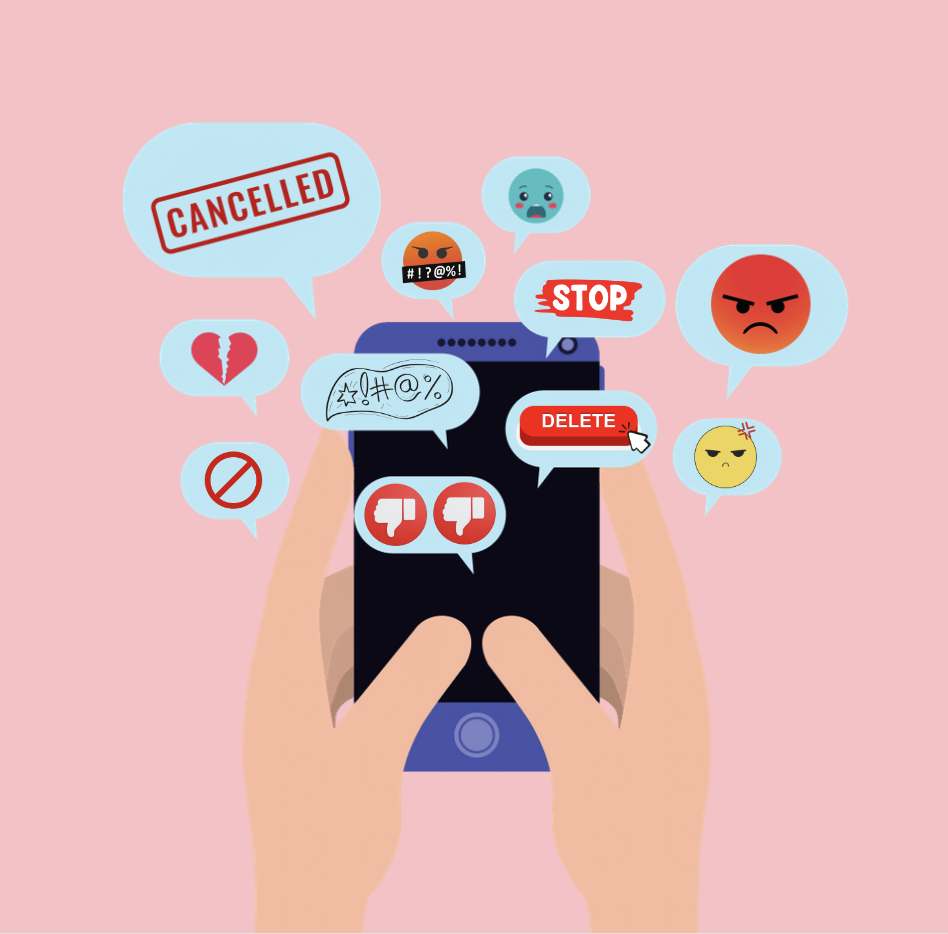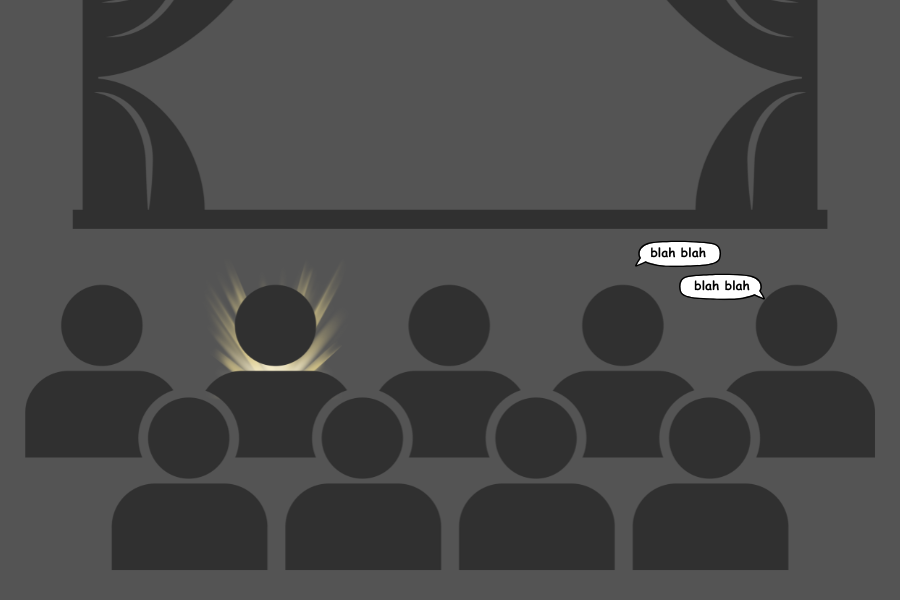From J.K Rowling’s bitter and hateful comments, Kevin Hart’s Oscars controversy to how we dress, what we eat and how we behave, cancel culture is everywhere.
In the digital age, cancel culture has emerged as a powerful force, wielding the potential to reshape reputations and redefine boundaries of acceptable discourse. The widespread movement, which originated in early 2020, is a hot topic in society and many hold their tongues, fearing retaliation.
But perhaps it is time to cancel “cancel culture” for the future’s sake.
Freedom of speech and diverse points of view have become increasingly controversial, especially in the social media realm. Many believe only their opinion is correct, and any deviation is often seen as heretical. Platforms like X, formerly known as Twitter, and Instagram have become spaces where the masses engage in “canceling people,” whether the targets are anonymous individuals or public figures.
Canceling someone not only entails a damaged reputation but also boycotts and in worst-case scenarios, legal actions. Yet, the real problem is that the whole idea of cancel culture is becoming banalized.
Don’t get me wrong, Rowling or Hart aren’t innocents, but cancel culture isn’t just aiming for them. In the evolving internet era, the line between freedom of speech and cancel culture’s consequences is thin. Everywhere in the world, there is someone who is going to try and cancel something we say or do.
While the underlying principles of accountability and justice are essential, how culture operates is still widely debated. Is it morally right to “cancel” individuals?
Supporters argue that cancel culture is crucial for addressing deep-rooted issues such as racism, sexism and injustice. They argue it is a way to challenge systems that have perpetuated inequality and silenced marginalized voices. However, cancel culture is not the solution to these issues.
Accusations, no matter how valid, can lead to immediate consequences. In this day and age, a simple post can act like a ripple where one small “update” can have an enormous impact. Yet, we need to as a society, find a way to expose and address important issues without causing contentious behavior from both sides.
The term consequence culture can be an alternative path while fighting against the normalization of cancel culture. It entails that society should encourage growth and education even when holding individuals or companies accountable for their actions.
In consequence culture, the focus is not on punitive measures or public shaming as seen in cancel culture. Instead, it recognizes that accountability can take various forms including apologies, redemption and learning from mistakes.
It can be argued that consequence culture is just a “second wave” of cancel culture, but in my opinion, it has the potential to become a better choice. It can be not only a renovation but a change to society to evolve.
I think cancel culture isn’t aging well: it is past time we move forward. Consequence culture is a path that should be considered as a more appropriate alternative to follow in a community where, unfortunately, backlash against others is normalized.
I expect consequence culture to make any environment — digital or real — as pleasant and peaceful as possible with open safe spaces for debates. After all, no one is the same nor think alike but that doesn’t mean the opinions of others are to be disrespected.
Hopefully, it can strike a balance between accountability and the opportunity for redemption, encouraging a culture in which people are more willing to take responsibility for their actions and work toward positive change.










